Related Research Articles
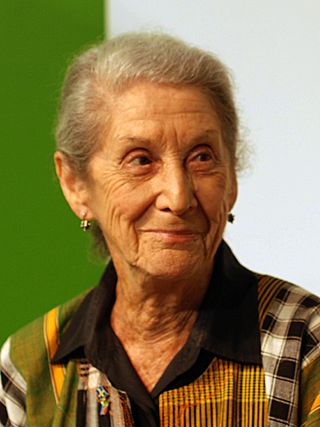
Nadine Gordimer was a South African writer and political activist. She received the Nobel Prize in Literature in 1991, recognised as a writer "who through her magnificent epic writing has ... been of very great benefit to humanity".
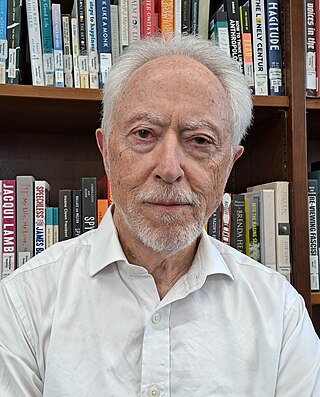
John Maxwell Coetzee FRSL OMG is a South African and Australian novelist, essayist, linguist, translator and recipient of the 2003 Nobel Prize in Literature. He is one of the most critically acclaimed and decorated authors in the English language. He has won the Booker Prize (twice), the CNA Literary Award (thrice), the Jerusalem Prize, the Prix Femina étranger, and The Irish Times International Fiction Prize, and holds a number of other awards and honorary doctorates.

Breyten Breytenbach is a South African writer, poet, and painter who became internationally well-known as a dissident poet and vocal critic of South Africa under apartheid, and as a political prisoner of the National Party-led South African Government. Breytenbach is now informally considered by Afrikaans-speakers as their poet laureate and is one of the most important living poets in Afrikaans literature. He also holds French citizenship.

André Philippus Brink was a South African novelist, essayist and poet. He wrote in both Afrikaans and English and taught English at the University of Cape Town.
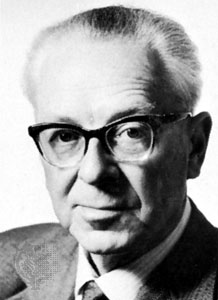
William Charles Franklyn Plomer was a South African and British novelist, poet and literary editor. He also wrote a series of librettos for Benjamin Britten. He wrote some of his poetry under the pseudonym Robert Pagan.

Antjie Krog is a South African writer and academic, best known for her Afrikaans poetry, her reporting on the Truth and Reconciliation Commission, and her 1998 book Country of My Skull. In 2004, she joined the Arts faculty of the University of the Western Cape as Extraordinary Professor.
The poetry of South Africa covers a broad range of themes, forms and styles. This article discusses the context that contemporary poets have come from and identifies the major poets of South Africa, their works and influence.
Zoë Wicomb is a South African author and academic who has lived in the UK since the 1970s. In 2013, she was awarded the inaugural Windham–Campbell Literature Prize for her fiction.
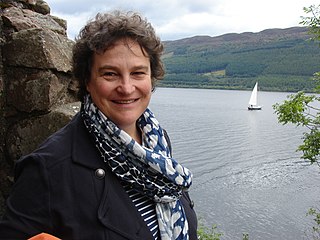
Marlene van Niekerk is a South African poet, writer, and academic. She is best known for her novels, the satirical tragicomedy Triomf (1994) and the Hertzog-winning Agaat (2004), which explore themes including the family, the change in power dynamics occasioned by the end of Apartheid, and inequalities of race, gender, and class. Van Niekerk is also an award-winning poet. She writes in her native tongue, Afrikaans, and teaches at Stellenbosch University.
Mark Behr was a Tanzanian-born writer who grew up in South Africa. He was professor of English literature and creative writing at Rhodes College, Memphis, Tennessee. He also taught in the MA program at the University of the Witwatersrand in Johannesburg, South Africa.
David Dabydeen FRSL is a Guyanese-born broadcaster, novelist, poet and academic. He was formerly Guyana's Ambassador to UNESCO from 1997 to 2010, and was the youngest Member of the UNESCO Executive Board (1993–1997), elected by the General Council of all Member States of UNESCO. He was appointed Guyana's Ambassador Plenipotentiary and Extraordinaire to China, from 2010 to 2015. He is one of the longest serving diplomats in the history of Guyana, most of his work done in a voluntary unpaid capacity. He is a cousin of Guyana-born Canadian writer Cyril Dabydeen.
Etienne van Heerden, born 3 December 1954, is a South African author.

South African literature is the literature of South Africa, which has 11 national languages: Afrikaans, English, Zulu, Xhosa, Sotho, Pedi, Tswana, Venda, Swazi, Tsonga and Ndebele.

Christopher van Wyk was a South African children’s book author, novelist and poet. Van Wyk is famous for his poem "In Detention" on the suspicious deaths that befell South African political prisoners during Apartheid. He was also an editor at Ravan Press.
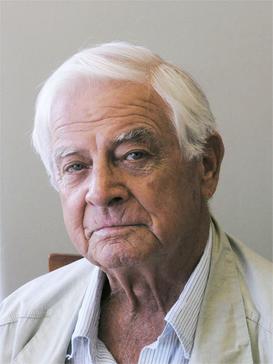
Patrick Roland Cullinan was a South African poet and biographer.
Imraan Coovadia is a South African novelist, essayist, and academic. He is the director of the creative writing program at the University of Cape Town. He has taught 19th-Century Studies and Creative Writing at a number of US universities. His debut novel, The Wedding, published simultaneously in the US and SA in 2001, has been translated into Hebrew and Italian.
Kelwyn Sole is a South African poet and academic.
Yewande Omotoso is a South African-based novelist, architect and designer, who was born in Barbados and grew up in Nigeria. She currently lives in Johannesburg. Her two published novels have earned her considerable attention, including winning the South African Literary Award for First-Time Published Author, being shortlisted for the South African Sunday Times Fiction Prize, the M-Net Literary Awards 2012, and the 2013 Etisalat Prize for Literature, and being longlisted for the 2017 Bailey's Women's Prize for Fiction. She is the daughter of Nigerian writer Kole Omotoso, and the sister of filmmaker Akin Omotoso.
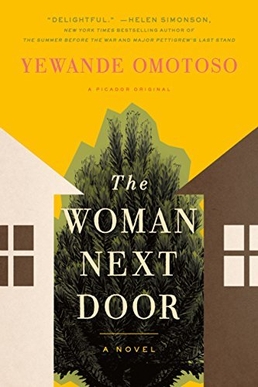
The Woman Next Door is a 2016 novel written by Yewande Omotoso. It is Omotoso's second novel, and her first to be published in the US. The story focuses on two elderly widows in Cape Town, one black and one white, who begin as acrimonious neighbors but come to know each other better after an accident. The novel was first conceived in 2012, and draws on Omotoso's research on Apartheid in South Africa and Jewish history in Cape Town. Thematically, the novel combines a serious examination of post-Apartheid reconciliation with witty debates between its characters.
References
- ↑ Prizewinning Literature: UK Literary Award Winners by Anne Strachan, publ. 1989 by Library Association Publishing Ltd ISBN 0-85365-558-8
- ↑ Costa Book awards, Past Winners Archived 29 December 2009 at the Wayback Machine
- ↑ "The Man Booker Prize, writer's profile for Christopher Hope". Archived from the original on 3 December 2010. Retrieved 7 February 2011.
- ↑ "Royal Society of Literature All Fellows". Royal Society of Literature. Archived from the original on 5 March 2010. Retrieved 9 August 2010.